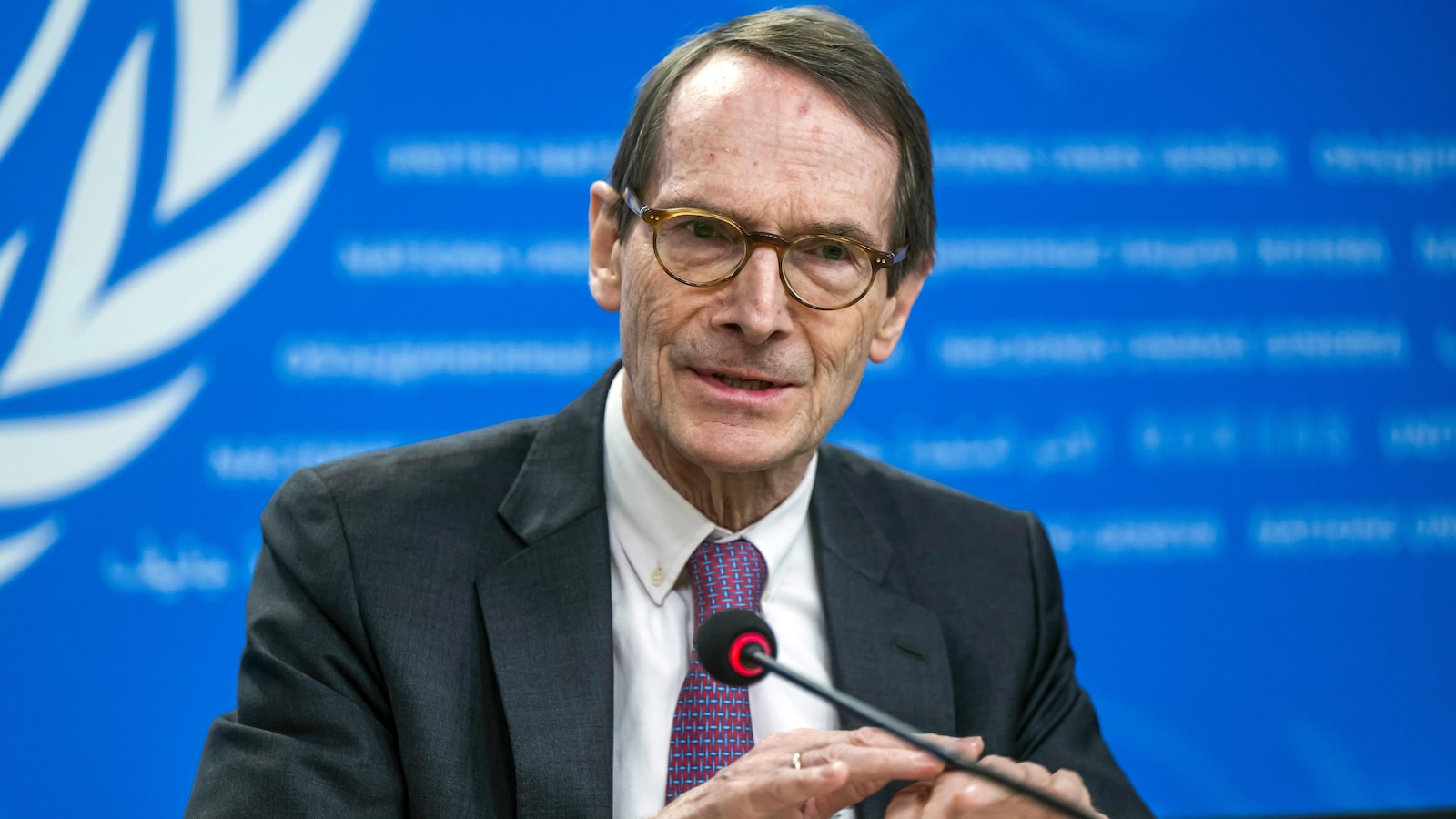
GENEVA — U.N.-backed human rights experts said Friday they have gathered new evidence of “horrific” torture of Ukrainian prisoners of war by their Russian jailers, saying such practices could amount to war crimes.
The Commission of Inquiry on Ukraine said human rights violations have been widespread since Russian President Vladimir Putin ordered his troops to invade the country more than two years ago, and that civilian suffering from the war continues to mount.
“New evidence strengthens the commission’s previous findings that torture used by Russian authorities in Ukraine and in the Russian Federation has been widespread and systematic,” the commission said in its latest report, citing “horrific treatment” of POWs at several sites in Russia.
Commission chair Erik Mose said the torture takes many forms including beating, verbal abuse, electric shocks, and limited access to food and water.
“The whole treatment of the prisoners of war and the picture drawn up emerging from the way they were dealt with, how they were treated over long periods — months — enables us to use the word ‘horrific,’” he told reporters on the sidelines of a Human Rights Council meeting in Geneva.
Russian forces regularly showed little regard for possible harm to civilians in their military operations, the report said, adding that incidents of rape and sexual violence against women in the war in Ukraine amounted to torture.
“Our determination is that both rape and sexual violence are war crimes,” commission member Vrinda Grover said. “With the focus this time on prisoners of war, we have also found that there was a sexualized dimension of torture of male prisoners — Ukrainian prisoners of war.”
Relocation of children from the Kherson region in southern Ukraine to Russian-occupied Crimea did not appear to be temporary, they said, and could amount to the war crime of unlawful transfer.
As for the Ukrainian side, the report cited “a few violations” of human rights by Ukrainian authorities against people suspected of collaborating with Russia.
The commission, mandated by the U.N.-backed rights council that is in the midst of a six-week session, said it conducted more than two dozen trips to Ukraine and drew on interviews of more than 1,400 men and women over the last two years.
In one case, a former Ukrainian detainee who was not identified described having his collarbone broken, teeth knocked out and injured foot beaten, among other mistreatment, until “he begged them to kill him,” the report said.
After release, he underwent 36 hospitalizations through January this year, Mose said.
While praising assistance from Ukrainian authorities, the team cited a “lack of cooperation” from Russian authorities and said it received no answer to its nearly two dozen requests for meetings, access and information.
Recent reports of new evidence of torture of Ukrainian prisoners of war (POWs) by Russian forces have sparked concern among human rights experts and organizations. The evidence, which includes photos and testimonies from former POWs, paints a disturbing picture of the treatment of Ukrainian soldiers captured by Russian forces.
According to the reports, Ukrainian POWs have been subjected to brutal torture methods, including beatings, electric shocks, and psychological abuse. Some of the prisoners have also been denied access to medical treatment and basic necessities such as food and water. The evidence suggests that these acts of torture are not isolated incidents, but rather part of a systematic campaign by Russian forces to intimidate and degrade Ukrainian soldiers.
Human rights experts have condemned these actions as clear violations of international law and basic human rights. The Geneva Conventions, which govern the treatment of prisoners of war during armed conflicts, explicitly prohibit torture and other forms of inhumane treatment. The reports of torture of Ukrainian POWs by Russian forces are a stark reminder of the importance of upholding these principles in times of war.
The international community has also expressed concern over the treatment of Ukrainian POWs by Russia. The United Nations has called for an investigation into the reports of torture and has urged both parties to the conflict to respect the rights of prisoners of war. The European Union has also condemned the actions of Russian forces and has called for accountability for those responsible for the torture of Ukrainian soldiers.
In response to the reports, human rights organizations have called for increased monitoring and oversight of the treatment of prisoners of war in Ukraine. They have also called on the Russian government to ensure that all prisoners are treated in accordance with international law and are afforded their basic rights.
The reports of torture of Ukrainian POWs by Russian forces are a troubling development in the ongoing conflict between the two countries. It is imperative that the international community takes action to hold those responsible for these atrocities accountable and to ensure that all prisoners of war are treated with dignity and respect. Only by upholding the principles of international law and human rights can we hope to bring an end to the suffering and violence in Ukraine.


